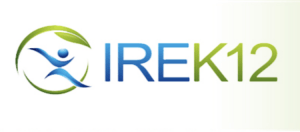
Congratulations are in order for three outstanding accomplishments from ANVIL lab members this past month!
Becca Clements (2nd year PhD student in BME) was awarded a 3-year fellowship from the NSF Graduate Research Fellowship Program! This will fund her exploration into the organization of vascular regulation in the human brain, and particularly the presence of long-distance “vascular networks” that may support typical functional neural networks.
Kim Hemmerling (4th year PhD student in BME) received a stellar 6%ile score on her NIH F31 Predoctoral Fellowship application! This score reflects the amazing potential for the spinal cord fMRI methods she has been developing in our lab, and specifically towards looking at atypical upper limb movement patterns post-stroke.
And finally, Max Wang (Postbac Research Technologist) has been awarded a prestigious Fulbright Scholarship! Max will pursue his Masters research in translational neuroimaging at the University of Nottingham in the UK starting this fall.
These successes reflect the impressive ongoing hard work and perseverance of our trainee researchers. We are so pleased to see these efforts acknowledged and rewarded, and we are looking forward to seeing what new science emerges as they begin these exciting projects. Congratulations Becca, Kim, and Max!




